Quality Improvement through Health IT
ADHRI leverages health IT innovations to enhance clinical quality, patient safety, public health, and health equity across Africa.

Quality improvement through Information Technology (IT) is a critical aspect of modern healthcare. IT solutions play a pivotal role in enhancing healthcare quality by improving patient outcomes, increasing efficiency, reducing errors, and promoting evidence-based practices. Here are ways in which IT contributes to quality improvement in healthcare:
Electronic Health Records (EHRs): EHR systems digitize patient health records, making them easily accessible to healthcare providers. This reduces the risk of errors associated with paper records, ensures better data accuracy, and supports coordinated patient care.
Clinical Decision Support Systems (CDSS): IT-driven CDSS provides healthcare professionals with real-time clinical guidance and evidence-based recommendations during patient encounters. This helps in accurate diagnosis, treatment, and adherence to clinical guidelines, ultimately improving patient outcomes.
Telehealth and Remote Monitoring: IT enables remote patient monitoring and telehealth consultations. This allows healthcare providers to monitor patients' vital signs, manage chronic conditions, and deliver care to individuals in remote or underserved areas, improving access to healthcare services.
Health Analytics: Advanced data analytics and machine learning tools can analyze large datasets to identify trends, predict disease outbreaks, and assess the effectiveness of treatments. This data-driven approach enables healthcare organizations to make informed decisions and improve care quality.
Medication Management: IT systems support medication reconciliation, medication order entry, and automated alerts for drug interactions and allergies. This reduces medication errors and enhances patient safety.
Interoperability: IT solutions facilitate the interoperable exchange of patient information among different healthcare systems and providers. This supports seamless care coordination, reduces duplicate testing, and ensures that healthcare providers have a comprehensive view of a patient's medical history.
Quality Metrics and Reporting: IT systems can automate the collection and reporting of quality metrics. Healthcare organizations can track and benchmark their performance against quality indicators and drive continuous improvement initiatives.
Patient Engagement: IT tools, such as patient portals and mobile apps, enable patients to actively participate in their care. They can access their health information, schedule appointments, receive reminders, and communicate with their healthcare team, leading to improved patient engagement and adherence to treatment plans.
Population Health Management: IT assists healthcare organizations in identifying at-risk populations and implementing preventive care strategies. By focusing on population health, organizations can address health disparities and improve overall community well-being.
Evidence-Based Medicine: IT provides access to up-to-date medical literature, clinical guidelines, and best practices. Healthcare professionals can use this information to make evidence-based decisions and deliver high-quality care.
Efficiency and Workflow Optimization: IT can streamline administrative tasks, reduce paperwork, and automate workflows. This frees up healthcare providers to spend more time with patients and deliver more personalized care.
Patient Safety: IT systems can alert healthcare providers to potential safety risks, such as allergies or adverse drug reactions, and support the implementation of safety protocols.
In summary, Information Technology is a powerful tool for driving quality improvement in healthcare. It enhances patient care, safety, and satisfaction, while also supporting healthcare providers in making informed decisions and optimizing healthcare processes. Embracing IT solutions is essential for modern healthcare organizations seeking to deliver high-quality, efficient, and patient-centered care.
Health information technology (HIT) holds enormous potential to enhance healthcare quality, safety and equity - but thoughtful implementation is key. As digital health pioneers, the African Digital Health Research Institute (ADHRI) approaches HIT as an enabler for broader quality improvement initiatives.
ADHRI focuses on applying HIT innovations to:
- Reduce diagnostic and medication errors through decision support tools.
- Manage chronic diseases and identify care gaps through health information exchange.
- Monitor healthcare variations and biases to enhance health equity.
- Apply predictive analytics on patient data to avoid risks and adverse events.
ADHRI collaborates on evidence-based HIT interventions that strengthen health systems rather than introducing new inefficiencies. Our human-centered design process prioritizes quality, safety and increased access for all.
